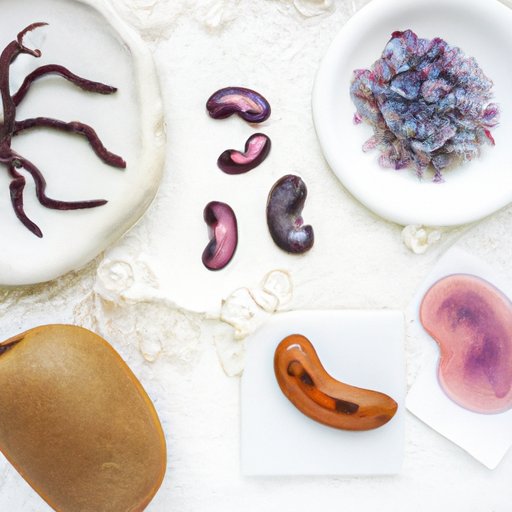
Introduction
Kidney stones are small, hard mineral deposits that form in the kidneys and can cause severe pain and discomfort when passing through the urinary tract. While kidney stones are a common condition, affecting approximately 1 in 10 people, they can be extremely painful and disruptive to daily life. In this article, we will explore natural remedies, medical options, and lifestyle changes for preventing and treating kidney stones.
Natural Remedies for Kidney Stones
There are various natural remedies that can help dissolve kidney stones and ease the symptoms associated with passing them. Some of the natural ingredients and food items that have been shown to be effective in removing kidney stones include:
- Lemon juice
- Apple cider vinegar
- Olive oil
- Celery juice
- Pomegranate juice
- Watermelon
- Asparagus
- Nettle leaf
- Dandelion root
While these remedies may be effective, it is important to note that their effectiveness can vary and some may not work for everyone. It is also important to use caution when using natural remedies, as they can have side effects and may interfere with medications or pre-existing medical conditions.
Medication and Surgery for Kidney Stones
For larger or more severe kidney stones, medical options such as medication or surgery may be necessary. Medications such as potassium citrate, alpha-blockers, and diuretics can help dissolve and prevent the formation of kidney stones. Surgery may be necessary for stones that are too large to pass on their own or have complications such as infection or bleeding.
While medication and surgery can effectively treat kidney stones, they also come with potential risks and side effects. It is important to discuss all medical options with a healthcare professional and weigh the pros and cons of each option for individual needs.
Lifestyle and Dietary Changes for Preventing Kidney Stones
Adopting healthy lifestyle habits and making dietary changes can play a significant role in preventing kidney stone formation. Recommendations for prevention include:
- Drinking plenty of water
- Limiting salt and sodium intake
- Eating a diet rich in fruits and vegetables
- Avoiding high oxalate foods such as spinach, rhubarb, and beets
- Obtaining recommended daily calcium intake through food or supplements
While lifestyle and dietary changes can be highly beneficial in preventing kidney stones, it is important to make these changes under the guidance of a healthcare professional. Rapid or extreme dietary changes can cause negative effects on the body, so it is important to make changes in a gradual and sustainable manner.
The Emotional Side of Living with Kidney Stones
Dealing with kidney stones can take a toll on one’s emotional well-being. Symptoms such as pain, nausea, and fatigue can cause feelings of anxiety, depression, and frustration. Coping with kidney stones emotionally can involve practicing relaxation techniques such as meditation, seeking support from loved ones, and reaching out to professional resources such as therapy and support groups.
Foods to Avoid to Prevent Kidney Stones
In addition to incorporating healthy foods into the diet, it is also important to avoid certain foods that can contribute to the formation of kidney stones. Foods that should be avoided include:
- Processed foods and snacks
- Alcohol and soda
- Red meat
- Sugar and high fructose corn syrup
- Caffeine
While eliminating these foods from the diet can be beneficial, it is important to replace them with healthy alternatives to ensure that the body is receiving proper nutrients and energy.
Conclusion
Kidney stones can cause significant pain and disruption to daily life, but there are various ways to prevent and treat them. Incorporating natural remedies, medical options, and lifestyle changes can play a significant role in dissolving and preventing the formation of kidney stones. However, it is important to seek guidance from a healthcare professional and approach these options in a safe and gradual manner.





